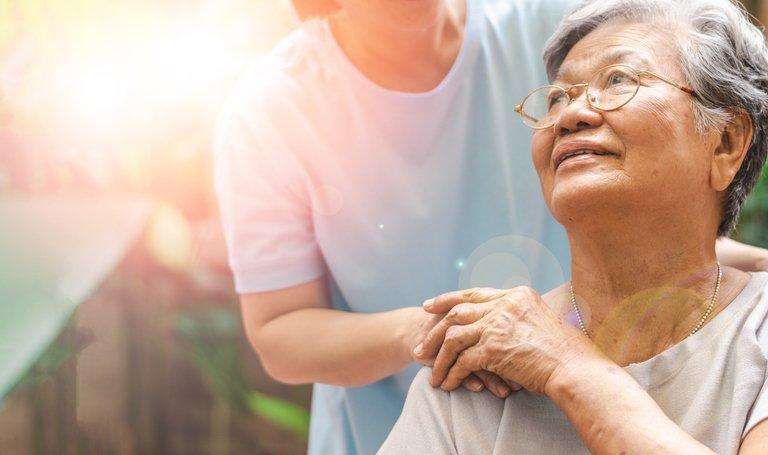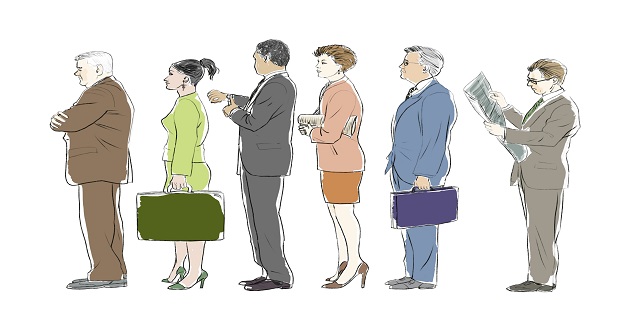
My grandmother, Harriet, was formidable, a force to be reckoned with in nearly every way. My first memories of her involve a firm request to wrap the challah bread at the diner because “why waste good bread” and “challah is perfect to freeze for French toast to be made on some unspecified later date.” The wait staff didn’t dare raise an eyebrow at this request, just as they would be smart to avoid arguing with her assessments of the baked potato (not hot enough) or the fish (too bland).
Harriet, or Gram, would shamelessly whip out an emerald-green, marbled tube of Revlon lipstick ANYWHERE and swipe back and forth against her forever-dry lips (her words, not mine) until they were rendered two pearlized slices of tangerine. She would pick her dyed, curly hair in the same unabashed way, or dab at her button nose using a tissue she pulled from a Ziploc bag buried deep in her large leather purse.
She went to college when her kids — my mother, aunt, and uncle — were still in school (which was mostly unheard of at that time in history), worked as a social worker at Social Services for many years, and had an unrivaled passion for chamber music, PBS, books on CD, and strongly brewed Lemon Lift tea. She was loyal to a fault, even when relationships no longer served her (or never did), spicily honest with her opinions, and believed that all women should invest in undershirts and under-eye concealer.
I learned so much from her and gained even more than that from our incredibly close relationship. She sparked and cemented my love for international travel, exotic foods, and long, flowing skirts in hot summer months. She taught me about the brutality of humans, through her own endured pain, and the need to find self-care when it matters most — mostly through her inability to prioritize her own.
Later in life, when she found a voice that was maybe too strong and too forceful, it was those of us who were closest to her that were pained by it, but also understood. We profoundly understood that when a human has been willingly and unwittingly silenced for so long, the voice they eventually discover may seem like too much. We also understood that she needed to have that voice, rather than no voice at all.
Harriet was a fierce feminist and an antiracist, and was the first woman I knew to take yoga. She believed in matching always, maintaining one’s health, and would never have used an iPhone calendar, ever. Ever.
Why am I sharing my great love and admiration and infuriation with the feisty, brilliant, interesting woman who was my grandmother? Well, first and foremost, to allow her outstanding legacy to live on. Secondly, to make more impactful what I’m about to share. To explain the truly outstanding power of the failing of the human brain.
June is Alzheimer’s and Brain Awareness Month. A month dedicated to education and understanding and acknowledgment of those terrible conditions and afflictions that curse what is our most critical organ. Before I continue, I would like to share three incredibly meaningful statistics shared by the Alzheimer’s Association[1], as follows:
- More than 6 million Americans are living with Alzheimer’s. By 2050, this number is projected to rise to nearly 13 million.
- 1 in 3 seniors dies with Alzheimer’s or another dementia. It kills more than breast cancer and prostate cancer combined.
- In 2022, unpaid caregivers provided an estimated 18 billion hours of care valued at $339.5 billion.
According to the World Health Organization, “Alzheimer disease is the most common form of dementia and … [c]urrently, more than 55 million people have dementia worldwide, over 60% of whom live in low-and-middle income countries[2].”
Now that you understand in the most minute way how special Harriet was, and you have some basic facts about the terrifying prevalence of these brain diseases, I would like to share what it feels like to love someone suffering from dementia, in any form. As you may have already surmised, my beautiful Gram, Harriet, was diagnosed with and ultimately died from health concerns related to dementia.
I had to bear witness, over the course of a decade, to Harriet losing all of the magic that made Harriet Harriet. I had to watch my mother, her health care proxy, make unimaginably difficult decisions, like what life-sustaining measures to take. I had to understand when she forgot my name and birthday and face and relationship to her. I had to understand that at some point it did not make sense to dye her hair that orangey-reddish that was distinctly Harriet or paint her nails that faintly elegant shade that was decidedly neutral before such a thing was popular.
I had to get accustomed to strange hoarding, like juice from the kitchen of the facility where we eventually placed her to keep her safe, or argumentative behavior that appeared to originate from a space lacking substance. I needed to get used to the ever-present vacancy in the brightest blue eyes that were once sparkly with curiosity and judgment and compassion.
I had to remember what her voice sounded like before it became whisper soft and what her hugs felt like before they were withheld out of fear. I had to think about things like her physical and emotional and mental security. Not regular thinking, but a deferential thinking that pressed pause on moving forward with abandon.
I had to acknowledge that she would never ask me again if I had met a nice boy or whether I had watched the infuriating recent political debate. She would never again rail against inequity. I would never again get a birthday or holiday card crafted in her perfect penmanship, ended with “Love, Gram.” She would never again bully me to attend a family get-together or speak up for myself at work or try a jelly that was actually a concocted mixture of several half-empty jars.
She would never sit next to me at the Joyce Theater, eyes wide, and reach her hand across the chair rest to squeeze mine, wordless with awe. She would never again profess inebriety after a half a glass of Pinot Grigio or tell me how handsome Mark Harmon from NCIS was.
This cultured, fascinating woman who saw the world and contributed to it in the most significant ways, would not have the mental acuity to tell me to be braver, and take people less personally, and be more forgiving, always.
The color purple is the color that has been chosen to represent Alzheimer’s awareness and if I’m honest, this makes me smile. Of all the colors Harriet enjoyed, I’m not sure I ever saw her wear purple. Navy? Yes. Rust? Always. A good cream? Naturally. Purple? No. Not Gram. And so, it feels appropriate to encourage the wearing of purple. Just like I used to tell her that I love my tattoos and chewing gum and being single, and still, I loved her with every cell in my body. Fiercely, devotedly, and forever. And she understood and loved me just the same.
Dementia and Alzheimer’s are devastating — ruining for those afflicted and those who love them. The care is prohibitively expensive and often, burdensome. And so, like every challenging cause that has such personal and dire effects, I would ask that you do just one thing, or maybe two, in the month of June and, well, every month thereafter:
Talk about it. Really talk about it. Talk about your experiences and your fears. Ask questions. Educate yourself. Help where you can. Be compassionate. Be hopeful. Be brave.
I dedicate this article to Harriet Dubler Heller, the very true love of my life.
[1] https://www.alz.org/alzheimers-dementia/facts-figures
[2] https://www.who.int/news-room/fact-sheets/detail/dementia#:~:text=Key%20facts,injuries%20that%20affect%20the%20brain.



















Ah, Leah, I love your writing. I remember your Gram, from my junior and senior high school days when I was closest to your mom. The women in your family…tough, loving, compassionate, smart…be exceptionally proud that your apple doesn’t fall far from your tree. It’s not fair when the best of us fall prey to this devastating disease that steals the best pieces of us and leaves shells behind. You are better for her love, and I have no doubt that she was better for yours.